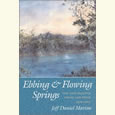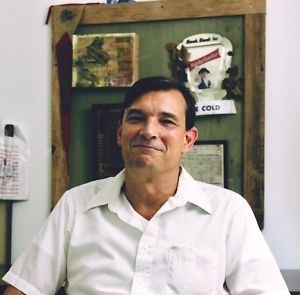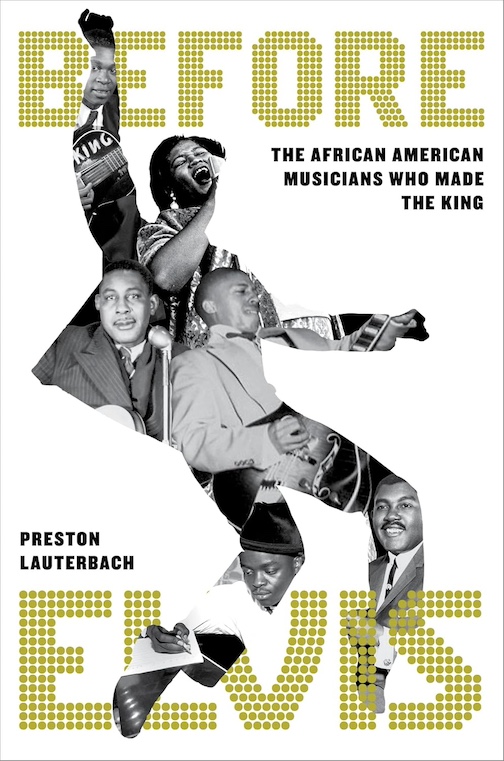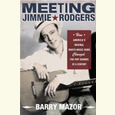Collective Cooking
Nancy Vienneau shares seasonal delicacies from Nashville’s famed Third Thursday Community Potluck
The term “potluck” implies a gambit. Beneath the lid you might find a fresh green chili stew, or you might find a frozen green-bean casserole. With her Third Thursday Community Potluck Cookbook: Recipes and Stories to Celebrate the Bounty of the Moment, Nashvillian Nancy Vienneau seeks to elevate the humble potluck beyond images of folding chairs and jello molds. The book features the best recipes of Third Thursday Community Potluck, a local event founded by Vienneau and her co-host, Gigi Gaskins, who stick to a fairly simple premise: once a month, participants bring a fresh, seasonal menu item to a community meal––no RSVPs, no required dishes, no faux wood paneling. Food may be the vehicle, but creativity and sharing are the goals.
 The Third Thursday Community Potluck Cookbook avoids Durkee Onions and Campbell’s Cream of Mushroom soup in favor of more luscious fare, such as Moroccan Vegetable Tagine with Saffron Couscous, Glazed Kiwi Tart with Orange-Scented Pastry Cream, and¬¬¬¬ Not Your ’70s Green Bean Casserole. The latter, it should be said, features fresh beans and mushrooms and homemade crispy onions.
The Third Thursday Community Potluck Cookbook avoids Durkee Onions and Campbell’s Cream of Mushroom soup in favor of more luscious fare, such as Moroccan Vegetable Tagine with Saffron Couscous, Glazed Kiwi Tart with Orange-Scented Pastry Cream, and¬¬¬¬ Not Your ’70s Green Bean Casserole. The latter, it should be said, features fresh beans and mushrooms and homemade crispy onions.
Vienneau recently answered questions from Chapter 16 via email:
Chapter 16: What’s your number-one tip for elevating a potluck event?
Vienneau: It begins with you. You set the bar. And, I don’t mean this in a competitive way. Cook something you love and would love to share.
Chapter 16: Your book, and the Third Thursday Potluck itself, has a seasonal focus. There are times, though, when a more specific theme is in order. Is there anything to watch out for when choosing a theme?
Vienneau: Two thoughts come to mind. One, don’t get bogged down with theme decorating—keep your eye on the prize: the food. And two, follow your nudges––this is a good tip for anything.
There was one potluck when we celebrated Chinese New Year as a theme, and I was going to make rice to accompany my cashew chicken dish. My co-host Gigi insisted that it was unnecessary, convinced that we would have lots of rice dishes. And I guess our potluckers figured the same thing, as nary a rice dish materialized that evening. No matter, we had noodles!
Chapter 16: Your potluck philosophy is pretty laissez-faire. The event almost always works out, you write. Can you share any stories where it didn’t?
Vienneau: I actually write that it always works out! Bold statement aside, I can think of a couple of potlucks that were definitely dessert heavy—but many would argue that having a sideboard laden with an array of cobblers, pies, cakes, and tarts works out just dandy.
There’s a risk in not assigning dishes, just as there is in not having RSVP; both are risks we prefer to take. We enjoy the element of surprise—Who all will come? What delicious dishes will they bring?
In the week leading up to potluck, Gigi and I will get together to form our cooking strategy. What sparks our appetites these days? What good things are growing in the garden? Or are available at the market?
I tend to make an anchor dish—a substantial main, and she usually chooses something complementary. This way, we know we’ll have the basics covered in the rare event of dessert overload.
We have never had a bad meal, not even a mediocre one. And, some have been mind-blowing delicious.
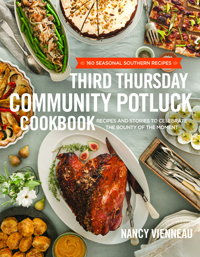 Chapter 16: The Third Thursday group has an advocacy piece, as does your cookbook: your events support community development, local farming, urban gardening, and sustainable living. How can Tennessee home cooks––many of whom lead busy lives––mirror these values?
Chapter 16: The Third Thursday group has an advocacy piece, as does your cookbook: your events support community development, local farming, urban gardening, and sustainable living. How can Tennessee home cooks––many of whom lead busy lives––mirror these values?
Vienneau: We all lead busy lives, but there are simple ways to bring these values into your day-to-day. As cooks, we make our shopping lists and ingredient choices. Include a visit to any of the many farmers’ markets that have popped up around the city. When we buy from our local farmers and producers, we are supporting families, putting monies directly into our local economy—while eating as fresh as it gets!
Urban gardening can be as ambitious as a half-acre plot or as fundamental as growing fresh herbs in your window box and tomatoes in containers on your back stoop or planting a fruit tree in your yard. All are of benefit. I derive great pleasure from the connection and immediacy of these simple things. Basic green practices such as recycling and composting have never been easier. It’s a matter of making a shift in thinking––what is important to you, what you will make a part of your life. I’d like to mention, too, that the recipes in Third Thursday are very approachable, made by home cooks. Food doesn’t have to be fancy to be fantastic.
Chapter 16: Some recipes in The Third Thursday Community Potluck Cookbook are credited to specific community members; others are not. Are all the book’s recipes taken from an actual Third Thursday event, or are some your own creations?
Vienneau: All of the 150 recipes have shown up on the table at Third Thursday. Over thirty potluckers contributed to this book. Some submitted several recipes; some just one. Many recipes are my creations, too, which I prepared for our potlucks. We’ve been gathering since June 2009. By the time I completed the manuscript last year, we’d hosted forty-four potlucks with an average of twenty-five guests. That’s added up to a wealth of dishes and recipes. The beauty is, it continues.

Paul Griffith is a freelance writer/musician based in Nashville whose interests include popular culture, religious history, and food and dining. Paul’s drumming can be heard on recordings by k.d. lang, Todd Snider, and many others.

